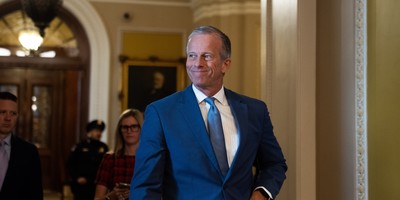The Biden administration continues to tell Americans that they should be pleased with their economic record and “Bidenomics.” However, there is a huge disconnect between what the Biden administration tells people how they should feel about the economy and how mainstream Americans actually feel about the economy. The following are several reasons for the related opinion gap.
The economy grew by an impressive 4.9% in the third quarter of 2023. However, it was driven largely by pent up demand and unsustainable debt financed spending by individuals and governments.
The overall inflation rate has come down from a peak of 9.1% in June 2022 to 3.4% in December 2023 but overall prices are still increasing. Most importantly, core inflation has increased almost 20% since President Biden took office three years ago. This compares to an increase of 9% during former President Trump’s four years in office. In addition, the current 3.4% rate is still higher than the Federal Reserve’s 2% target rate.
Food and energy prices are up even more than overall inflation rate and every American is impacted by food and energy prices. For example, while the average price for regular grade gas is down from its peak it is up about 36% since President Biden took office.
Real wages (net of inflation) have increased in 2023 but they were down in 2021-2022. In total, real wages are down about 5% from when President Biden took office.
The unemployment rate is low but is about the same as the pre-COVID rate. The Biden administration’s claim of record new job creation does not pass a straight face test. The increase in jobs during his tenure is overwhelmingly attributed to jobs recovered post-COVID rather than newly created jobs.
While unemployment is low, labor force participation is down from pre-COVID levels. In addition, many Americans are concerned about the impact that artificial intelligence (AI) and the current open border in the southwestern United States will have on their future employment security.
Recommended
Interest rates have risen significantly under President Biden. The effective Fed discount rate has risen from .08% to 5.33% during Biden’s tenure with a resulting increase in other interest rates. For example, mortgage rates are up 262% since Biden assumed office. As a result, millions of Americans can no longer afford to buy a home.
Federal and household debt has risen at a faster rate under Biden than Trump even though the “COVID emergency” is over. More debt at higher interest rates means much higher interest expense for Americans and America. The result is that both individual and federal budgets must accommodate more interest for which you get nothing!
Federal spending is up about 40% from pre-COVID levels under the Biden administration. This dramatic increase in spending and the Democrats pursuit of the flawed and failed Modern Monetary Theory (MMT) in 2021-2022 served to fuel higher inflation.
Total federal debt has already gone up by over $6 trillion under Biden with a projected $1.8 trillion plus increase in Fiscal 2024. This total increase exceeds the debt increase under Trump which was largely attributable to emergency COVID related spending and tax cuts. Americans understand that high deficits and mounting debt burdens result in higher interest costs. They will also result in spending cuts, higher taxes, and less economic growth over time.
From a stock market perspective, the S&P is up 23% under Biden versus 67% under Trump. After considering inflation, the net increase is about 3% for Biden and 58% for Trump.
When you consider all the above you can understand why most Americans, especially the middle class, say they are not better off today than when President Biden took office from an economic perspective. While many issues are important (e.g., border security/immigration, Ukraine, Israel, crime, abortion, protecting democracy), most people are likely to base their vote primarily on economic issues in November 2024. Therefore, it is important to monitor key economic statistics and assess them based on current data, the related trend, how they compare to when Biden took office, and how his record compares to his predecessors.
From a broader perspective, the federal government has been on an imprudent and unsustainable fiscal path for many years. Both major parties are responsible for this. Failure to put our federal finances in order will result in slower economic growth, less individual opportunity, reduced national security, and less domestic tranquility over time. Therefore, it is of critical importance to not just focus on short-term economic numbers, but to take steps to restore fiscal sanity and sustainability. Doing so will require both a statutory Fiscal Stability Commission and a Constitutional Fiscal Responsibility Amendment. Fortunately, bipartisan bills to form such a commission have been introduced in both Houses of Congress and House Concurrent Resolution (HCR) 24 is designed to address the need for a state led and citizen ratified Constitutional Amendment. Presidential candidates need to state their views regarding these needs and what their economic and fiscal priorities will be if they win the presidential race in November 2024. They have not done so to-date, this must change if we want our collective future to be better than our past.
Hon. David M. Walker is the Former U.S. Comptroller General and a Federal Fiscal Sustainability Foundation Board Member.

























Join the conversation as a VIP Member